Sir Reginald is peering over my shoulder and he’s making me nervous.
The first tee shot of the day is particularly vexing for recreational golfers, and in my case, a danger to all people, fauna, and vehicles in the vicinity. Now I have to contend with a steely gaze from a crow peering down from his perch, with a crown magically hovering above his head.
Sir Reginald is the mascot of the Royal and Ancient Chappaquiddick Links (RACL). The nine holes at the course play only 1,325 yards, but its rolling terrain, troublesome trees, and tricky bent grass greens will seriously test any golfer’s skills – however it’s not a place for golfers who take themselves, or the game, too seriously.
The ubiquitous images of Sir Reginald are one of many quirky touches at the RACL. An antique British “phone box” stands sentry in the parking lot, where sits a 1971 VW bus used for picking up golfers at the On Time ferry. A timeworn golf bag filled with faded persimmon woods, niblicks, and mashies sits at the entrance of the clubhouse – a prefab Sears shed with windows cut into it. The clubhouse bar is a refrigerator
with cold drinks that works on the honor system. The walls are festooned with century-old black and white photos of the course, the ancient machinery used to groom it, and knicker-clad golfers swinging hickory shaft clubs.
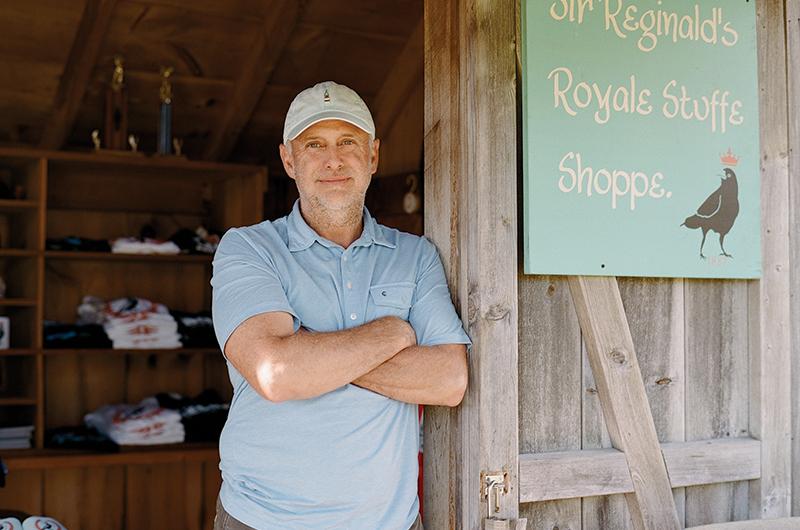
On the course, conch shells serve as tee markers and hazards include the cat box on the seventh hole and Lake Nala, a small boat behind the ninth green, commemorating the dog of RACL regular “Chappy Mike.”
In a sport that prizes decorum, hushed tones, and proper attire, perhaps nothing embodies the spirit of the RACL more than the posted dress code:
No shoes, no problem!
No shirt? Could be a problem.
No pants? Problem!
The name Royal and Ancient Chappaquiddick Links is an irreverent nod to the Royal and Ancient Links at St. Andrews in Scotland, the venerated birthplace of golf. Irony aside, the two courses actually have a fair bit in common.
Like the Royal and Ancient St. Andrews, the RACL is bounded by the sea. To the west, Nantucket Sound is an eight-iron from the RACL, and to the east, Cape Pogue Bay is a solid drive and three-wood away.
Both courses have stunning ocean views and score-breaking winds that can change the personality of the course in minutes. The seven-iron that reached the sixth green the first time around can easily become a four-iron on the second loop.
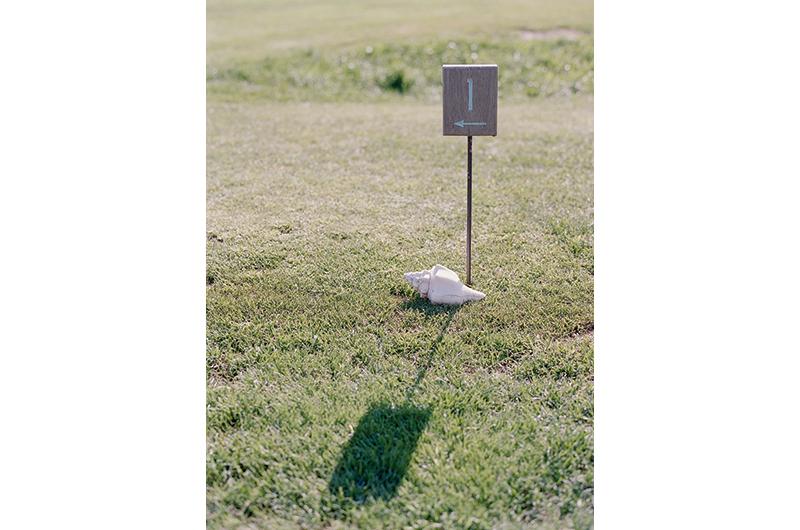
With every seaside course, the golfer will invariably hit off of hardpan terrain, which requires an extra level of precision and can turn a gentle chip shot into a screaming line drive at ankle height.
Both Royal and Ancient courses have a road hole – a tee shot where a public road comes into play. At the RACL, the first and fourth holes require tee shots over North Neck Road, which bisects the twenty-acre course. Amazingly, according to Island lore, there have been only two car–golf ball collisions, one of them allegedly with a well-known actress who has a house on North Neck.
The tone of the RACL is set by the self-effacing head honcho/greenskeeper/shuttle driver/handyman Brad Woodger, the great-grandson of Frank Marshall, who founded the RACL in 1887. “My great-grandfather was a serious sportsman; he sailed, fished, and played tennis and golf all day,” Woodger said. “He’d have thirty people at a time pitching in to build the course. It takes a dynamic personality to organize all that. A lot of my effort in the past forty years is to honor that.”
By 1905, Marshall had expanded the course to twenty-four holes. The extended Marshall family and their friends played the RACL every summer until the Great Depression put summer idyll on pause. The RACL stayed dormant during World War II – when Navy pilots dropping practice bombs at nearby Cape Pogue would have undoubtedly distracted many a putt.
The pitch pines, scrub oak, and thicket slowly took over, and by 1950 there was barely a trace of the RACL. That’s when Bob Marshall (Woodger’s grandfather), his sister Mary, and their respective spouses, Ruth Marshall and Ham Kelley, began restoring the course to its rustic glory, carving out six holes.
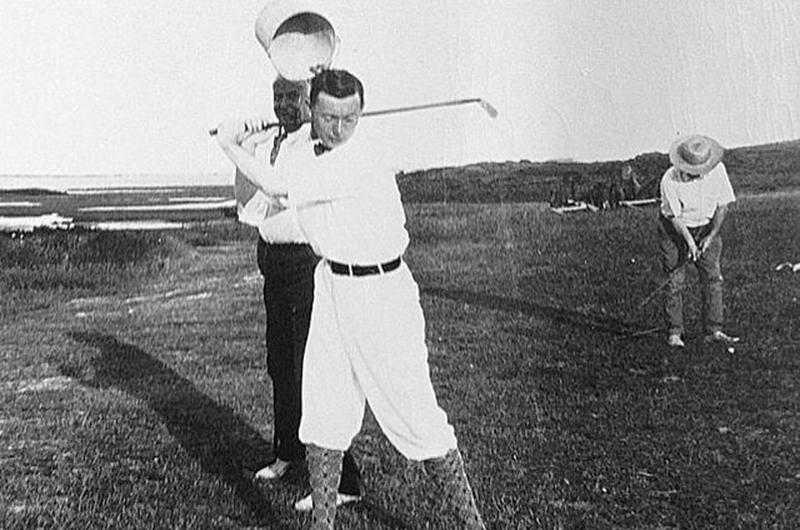
Keeping the tongue and cheek spirit alive, the RACL became the “Island Ball Watchers Society.”
“They had a blast; the Labor Day Clambake and Club Championship was always a big event,” Woodger said. “I grew up around that sense of fun. It informed the way I felt about the course. They worked hard and took good care of it. It wasn’t a throwaway thing.”
Woodger started working at the course when he was nineteen years old. “Back when I still had hair, I worked for my grandfather on the links,” he said. “In 1988 I got the superintendent job by default. Since then, it’s been a lot of trial and error.”
Woodger said the mentorship provided by other Island golf course superintendents was invaluable. “In the eighties, Ron Muckle at Edgartown Golf Club was a big help,” he said. “Jeff Carlson at Vineyard Golf Club was also really generous with his time. They really helped with the contours of the greens. It’s tricky because a lot of typical greens practices don’t translate to what I do. Each green is a different child. I actually get mad at them at times. Some are always great, some get mad at me.”
In 2005, Woodger, his former partner Kim Bennett, and longtime Chappy summer resident George Bennett (no relation to Kim) purchased the course for $225,000. In 2008, Woodger and Kim, with the financial support of George, expanded the RACL to its present nine holes. But the course struggled to stay afloat financially. In 2014, George stepped up and took full ownership of the property.
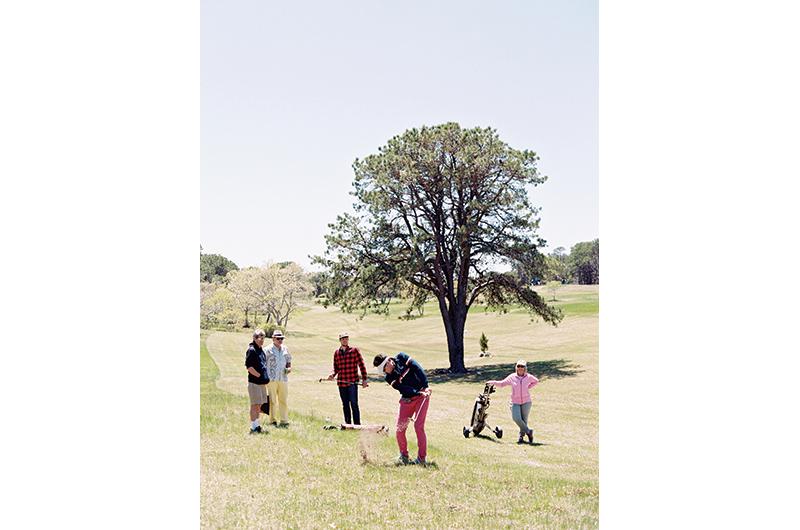
“George is an extremely generous and good person. We obviously couldn’t have done it without him,” Woodger said. “Kim’s father, Bob, also doesn’t get enough credit. From the early 1990s until 2010, he did a huge amount of work here for free. He’s an amazing guy; he worked for NASA for thirty years; he could fix anything. He’s a MacGuyver. I learned a lot from him.
“To this day, I do a lot of things where I have no idea what I’m doing, but I figure out how to get it done,” he continued. “My goal is always to take something ordinary and give it personality. I have a lot of freedom to do whimsical things.”
To wit: the ubiquitous Sir Reginald, whose image adorns the pin flags, buildings, Volkswagen bus, and a wide variety of merchandise – the shirts are worn by Irishman Garth McGee, an Island visitor who plays on the PGA Europro Tour and cheekily lists the RACL as his home course.
“My grandparents had a mascot of a cartoon bird with a big scarf and a look of surprise at a ball coming at him, so that was part of the inspiration.” Woodger said. “I like the idea of the crow and the crown and letting people figure it out. And I’ve always had a relationship with the crows here. I get there early, I leave late, and they’re with me the whole day.”
These days golf can be an expensive proposition, especially on Martha’s Vineyard. But at the RACL, the “all you can play” greens fees are $25 for Islanders and kids under sixteen, $50 for adult visitors, and $60 if you want a ride from and to the On Time ferry in Sir Reginald’s VW bus.
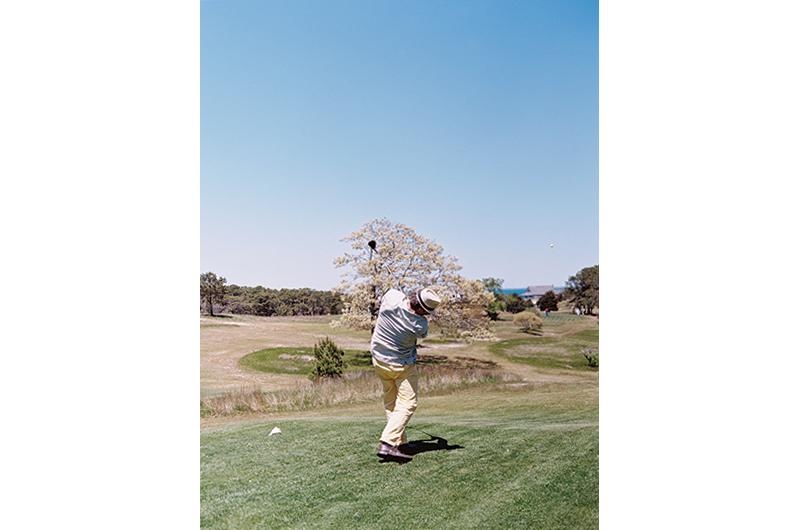
“Chappy isn’t an easy place to get to, so I want to reward people for making the trip,” Woodger said. “I like to watch the reaction of first timers who I pick up at the ferry. It takes a few minutes to get acclimated, but most of the time reactions are positive. After the long drive down North Neck Road, I think some of them are just happy they’re being delivered to a golf course and not being kidnapped.”
The RACL costs about $250,000 a year to maintain and operate. It’s only recently become self-sustaining. At peak season, the course books a modest forty rounds a day. “If it gets to be any more than that, it’s losing some of its character,” Woodger said. “It’s a real balance between generating income and keeping the flavor of the course.”
To keep that balance viable, Woodger hopes more people will become members of the prestigious and precocious RACL. An Islander “all you can play” membership costs $450 – less than the cost of two rounds at Farm Neck Golf Club in the summer season, if you can get a tee time. It’s $750 for golfers from America, which is $299,250 less than the fees at Vineyard Golf Club, without the waiting list.
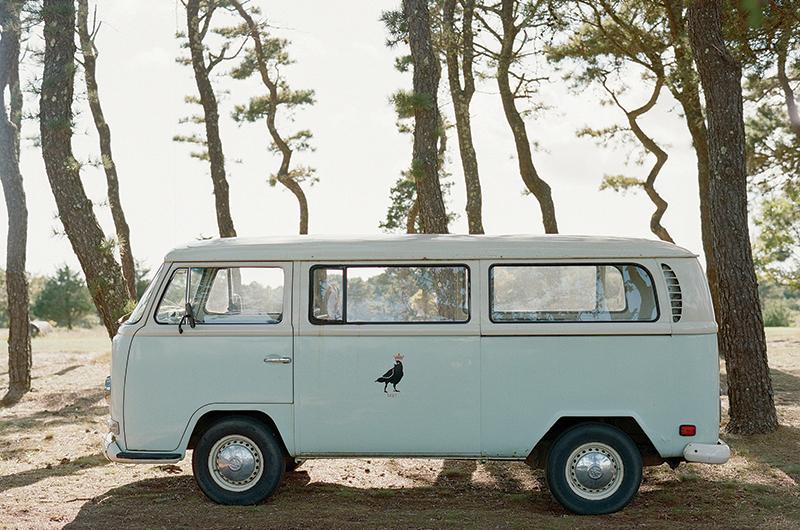
“Everything is getting more expensive, especially on this Island, and golf is becoming another thing that’s not attainable for a lot of people,” he said. “I want [the RACL] to capture the look and the spirit of the old Vineyard where I grew up, when people didn’t take themselves so seriously and things weren’t so exclusive. I want people to feel comfortable here. If you haven’t played before, you’re welcome here. If you’re a kid who wants to learn the game, you’re welcome here. If you want to play a round in your bare feet and have a few beers, you’re welcome here.”

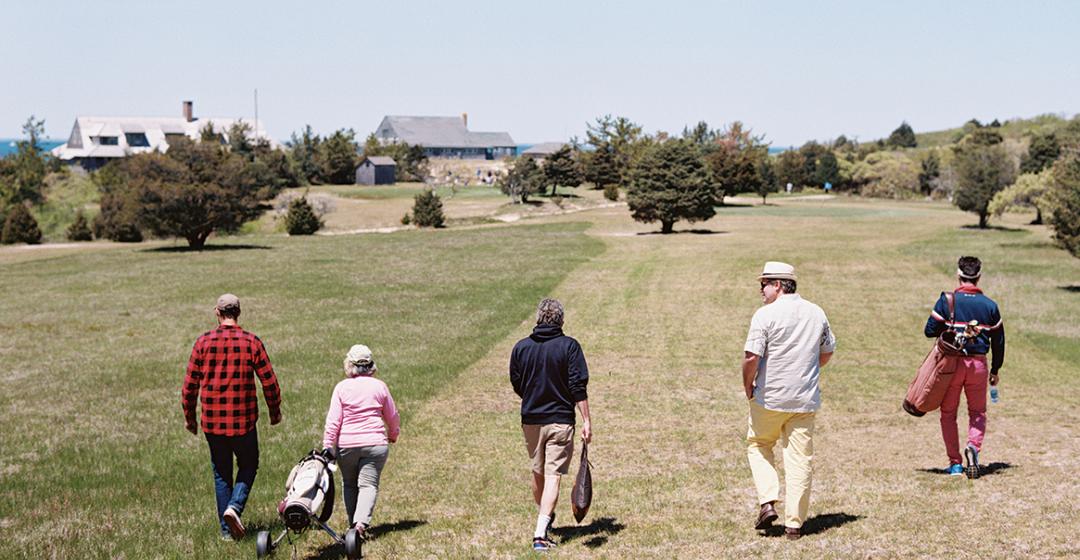


 2 comments
2 comments
Comments (2)